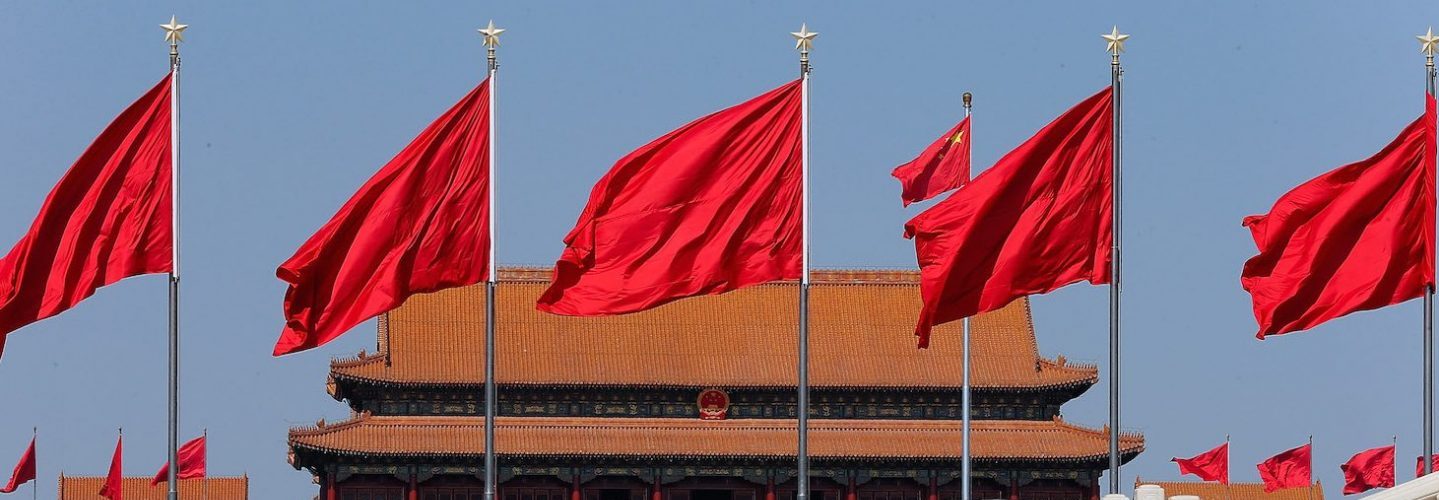In the minds of many Americans, espionage is conducted by men in trench coats sliding envelopes full of top secret blueprints to each other on park benches.
While that image isn’t always terribly far off, the modern world of information-gathering is exponentially more complex.
A recent U.S. government report, from a relatively low-profile agency of spy-catchers called the National Counterintelligence and Security Center, described how the Chinese government, in particular, is taking a “multipronged” approach to “acquire U.S. technology to include sensitive trade secrets and proprietary information.” Old school espionage is just one strand in a growing web that includes cyber heists and corporate machinations.
Here’s a look at the strategies by foreign powers that have the U.S. government on edge:
Cyber-espionage. The NCSC report focused on the cyber-security threats presented by China, Russia and Iran, and determined that though infiltration attributed to China have declined since a 2015 U.S.-China cyber commitment, the Asian giant still targets some particularly sensitive sectors.
“Most Chinese cyber operations against U.S. private industry that have been detected are focused on cleared defense contractors or IT and communications firms whose products and services support government and private sector networks worldwide,” according to the NCSC. The report specifically mentioned a hacking organization the U.S. government labeled APT 10, also known as MenuPass Group, as a continuing threat U.S. telecoms and aerospace firms.

In 2013, U.S. officials reported that Chinese hackers had compromised weapons system designs, including those of the stealth F-35 fighter and armed drones. Three years later, the U.S.-China Economic and Security Review Commission’s Michelle Van Cleave told lawmakers the FBI estimated that “the Chinese Army has developed a network of over 30,000 Chinese military cyberspies, plus 150,000 private-sector computer experts, whose mission is to steal American military and technological secrets.” [PDF]
But the NCSC report makes a point to say that China’s cyber operations do not exist in a vacuum, but rather are an integral part of their broader, coordinated, offline strategy to gain “science and technology advancement, military modernization, and economic policy objectives.”
Mergers and Acquisitions and Joint Ventures. There’s a relatively easy way to gain access to high-level technology produced by a firm in another country: buy that firm. Or create an opportunity to work closely with the targeted company. The NCSC report determined that China is doing both in order to quickly gain access to the tech it wants.
Readers of this column might remember a similar phenomenon that took place within the videogame industry. The NCSC report notes that China’s “legal and regulatory environment” puts foreign firms at a disadvantage while propping up domestic companies or subsidiaries. That, in turn, would presumably incentivize working with Chinese firms rather than competing against them on an uneven playing field. What American companies may see as smart business sense, the Chinese government sees as a collection opportunity. What’s good for E-sports is good for espionage, it seems.
Front Companies. In August 2015, a Chinese national living in the U.S. attempted to purchase 40 hydrophones, “devices used to detect and monitor sound underwater,” on behalf of a Chinese school called Northwestern Polytechnical University. The problem was the U.S. government identified the university as a “military research institute” closely linked to the Chinese military, and therefore was flagged from legally purchasing those devices, which could be used to help sniff out submarine movements.
So, according to court documents, after the U.S. firm selling the hydrophones alerted the Chinese national to that restriction, he claimed he had made a mistake and that the real end-user for the hydrophones was actually another university — one not so closely linked to the military.
It was a clumsy variation on another strategy described in the NCSC report: the use of “front companies” to “obscure the hand of the Chinese government and acquire export-controlled technology.” U.S. regulations tightly control who can have access to certain technologies, but if someone working on behalf of the Chinese government can set up a firm that looks convincingly independent of the military or government, the regulations may be circumvented.
‘Non-Traditional Collectors’ and Academia. In February, FBI Director Christopher Wray stunned many when he said that Chinese spies had infiltrated American academia in the guise of students, scientists and other scholars. “It’s basically every discipline,” Wray said in a congressional hearing. “They’re exploiting the very open research and development environment that we have, which we all revere. But they’re taking advantage of it.”
Wray referred to the purported infiltrators as “non-traditional collectors” — a term that’s used in the NCSC report to mean “individuals for whom science or business is their primary profession to target and acquire U.S. technology.”
The report concluded that in targeting academia, China also “uses collaborations and relationships with universities to acquire specific research and gain access to high-end research equipment.” Echoing Wray, the report concluded the Chinese government aims to “exploit the openness of academia to fill China’s strategic gaps.”
Talent Recruitment Programs. Finally, another way to gain an advantage from a foreign adversary is to siphon off some of the talent pool there. The NCSC report says China uses “talent recruitment programs” to lure foreign experts to China to work on “key strategic programs.”
Now, let’s be clear, the U.S., along with every major power, engages in economic espionage as well, as acknowledged openly in 2013 by then-Director of National Intelligence James Clapper. U.S. official appear more concerned, however, because generally speaking the U.S. enjoys a technological edge over China — meaning it has more to lose.
“We believe that China will continue to be a threat to U.S. proprietary technology and intellectual property through cyber-enabled means or other methods,” the NCSC report says. “If this threat is not addressed, it could erode America’s long-term competitive economic advantage.”
For its part, China has denied specific spying accusations in the past, and in 2015 the Chinese government said it “opposes all forms of cyber-attacks and commercial espionage.”
“On the issue of cyber-security, the Chinese side has repeatedly clarified its principled position. China is a staunch advocate for cyber security, as well as a victim of cyber-attacks,” a spokesperson for the foreign ministry told reporters.
“The Chinese government will neither encourage companies to carry out cyber theft for commercial secrets, nor take part in such activities. It is hoped that relevant parties can uphold the spirit of mutual respect and mutual trust, and have more dialogue and cooperation in the field of cyber security in a constructive manner.”
That sentiment, however, seems to be more subterfuge for the people entrusted to defend U.S. interests.
“[O]ne of the things we’re trying to do is view the China threat as not just the whole of government threat, but a whole of society threat on their end and I think it’s going to take a whole of society response by us,” said Wray.
This article appeared in an InsideHook newsletter. Sign up for free to get more on travel, wellness, style, drinking, and culture.























